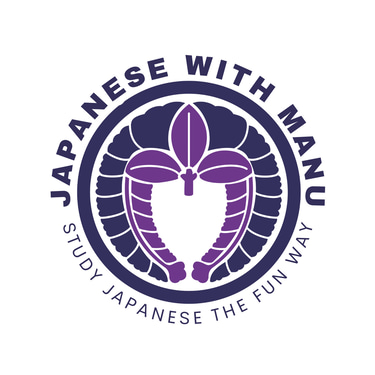Oyasumi nasai - good night?
Does good morning in Japanese really mean good morning? Or something else? Find out here!
Manu-sensei
8/23/20252 min read


There are many Japanese polite phrases that, translated literally, have a different meaning than the one you'd find in the dictionary.
For example, "Good night": おやすみなさい o-yasumi nasai:
The お (o) at the beginning is the polite syllable, which makes you sound more courteous overall. You can see this where the Japanese reading is used—you might have heard the word "o-sushi" or "o-sashimi." Or maybe even o-cha (cha is the word for tea, so o–cha is a respectful way to refer to tea).
You will especially see this with things that play an important role in everyday Japanese life, for example o-kane (money). Note: you can't just randomly add an o before any word; there is no o-ramen.
The やすみ means "rest," and in kanji, it looks like this: 休み yasumi. The first character (a kanji) has the radical (part of a kanji) for human on the left (by itself, it looks like this: 人). Here, however, it's a bit squashed: 亻. The right part of it is the kanji for tree, 木 (this one is also a bit more narrow compared to when it stands alone). Human and tree... Why is the person leaning against the tree? To take a break. When I was learning this, I thought of Baloo the Bear from The Jungle Book (even though he isn't human).
Finally, なさい nasai. This is a particularly polite form of します shimasu—the verb "to do"—and is formulated as a request.
Put together, this whole phrase makes a very polite request to take a break. A direct translation could be: "Please rest well." None of these words mean "good" or "night!"
Don't want to sound quite so polite? Then try おやすみ o-yasumi (without the なさい nasai).
But be careful: not every recipient is satisfied with this more casual version. The first time I stayed overnight with my (soon-to-be) husband and his family, I said おやすみ to his father and then had to listen to a detailed lecture as to why that wasn't allowed. In short: parents are higher in rank (seniority is very important in Japan), plus we didn't really know each other well enough yet. Before that, I had only had situations where I said goodnight to friends, and I didn't think to use the more formal version. So remember: there is always a difference between friends and... er... non-friends (boss, customers, people of higher social/age status), especially in polite language.
Knowing the background and true meaning of words, kanji, and polite phrases is extremely important. It helps you understand the culture, and also helps cement things in your mind. Simply memorizing a phrase is less effective than knowing its full background.
That's exactly how my courses and books are structured. Follow me now for even more helpful tips about Japan and the Japanese language :)
Are you just starting out and want to be able to understand how to construct your first simple sentences—without just memorizing them? Then sign up for my three hours crash course for beginners.
Are you looking for beginner level stories written in Japanese? If you're already comfortable with hiragana and katakana, you can check out my book "Reading Japanese for Beginners"—no knowledge of Kanji needed! It contains two stories and everything you need to understand them (grammar, vocabulary, and even some interesting information about Japan).
Explore
Discover Japanese language and culture through our online resources and courses.
Connect
youtube and podcast
© 2025 Manuela Ito-Loidl GmbH, Pfaffingstraße 78, 4802 Ebensee, Austria. All rights reserved.
manu (at) japanesewithmanu.com; FN 574287 s; UID ATU77802558
Privacy Policy/LEGAL NOTICE
